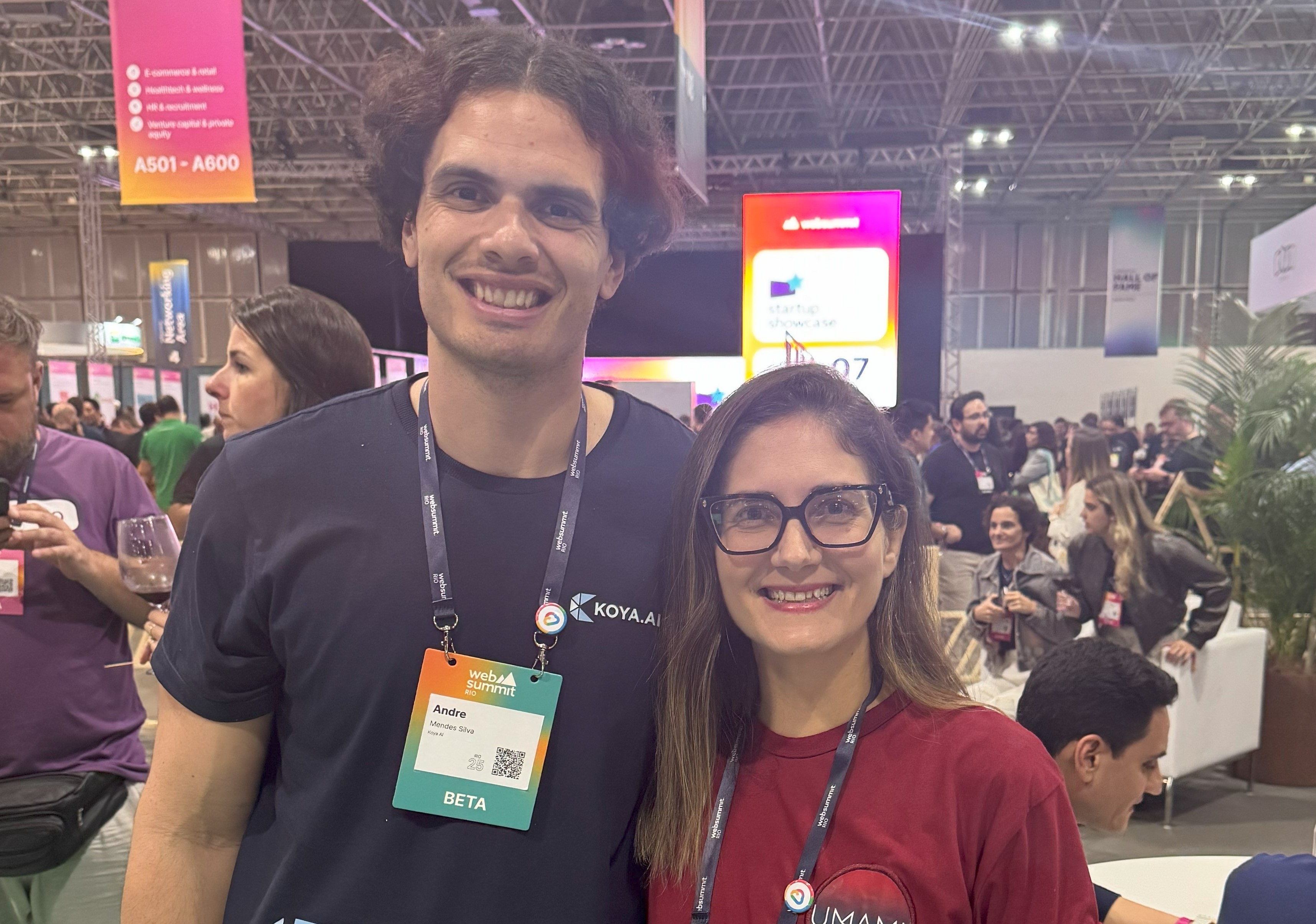Koya e Umami
Circular economy, recommerce, and the future of product data in e-commerce
May 22, 2025
If there was one clear takeaway from Web Summit Rio 2025, it's that e-commerce is undergoing a deep transformation — and it doesn’t start with a new technology or sales channel. It starts with a mindset shift.
Today’s consumers are more attentive, more selective… and much more conscious. In tighter economic times, it makes more sense to repair instead of replace, to buy used instead of new — and to think twice before throwing away something that still has value.
And the market is reacting fast.
Startups like Real Deal, Brinquedo Livre, and Vaapt are emerging with highly innovative recommerce models — marketplaces specializing in secondhand products, from luxury handbags to toys, and even management systems. And the momentum keeps growing: Fleequid, the first online marketplace focused on buying and selling used buses (!), has just raised €3 million to expand across Europe.
According to Forbes, marketplaces centered around the circular economy could lead a new wave of sustainable growth, with the global reuse and resale market projected to reach $650 billion by 2025 — nearly double the amount recorded in 2020.
But for this transformation to truly take hold, there’s an essential point that often goes unnoticed: if the product is used, the information must be flawless.
Selling secondhand items requires more context than selling something new. Each item is unique, there's no standardized inventory, and often not even a spec sheet is available. At the same time, buyers want — and need — to know exactly what they're getting: the condition of the item, usage history, authenticity, included components… Without clear answers, the chances of cart abandonment or returns increase dramatically.
A great example comes from SidelineSwap, a U.S.-based marketplace for sports equipment, which significantly improved its conversion rate by investing in product data enrichment (using public information and image analysis) and by enhancing its search filters based on that structured data.
This movement toward more complete and trustworthy shopping experiences was the topic of many conversations during Web Summit Rio. In one of those exchanges, Fabiola Santana, founder of Umami, and André Mendes, founder of Koya AI, discussed how their companies can collaborate to support retail — especially in this rapidly growing segment that reflects a cultural shift driven by Gen Z and millennials.

At the same event, Fabiola also spoke with Eduarda Robinson, founder of Real Deal, a Brazilian startup focused on the brokerage and advisory of pre-owned luxury goods. Eduarda shared that Real Deal is transforming into a full-fledged marketplace, with a strong focus on product curation and certification — ensuring each item’s authenticity and exclusivity. The goal is to maintain a select clientele, where access to the shopping area will be invite-only and subject to prior approval.
These initiatives show that it’s not just about selling used products — it’s about delivering trust. And in this context, artificial intelligence plays a fundamental role: transforming raw data into safe, seamless experiences. Aggregating information from multiple sources, normalizing attributes, enriching descriptions with photos and relevant details, and categorizing with precision — all of this is crucial to enable customers to filter, compare, and buy with confidence.
The circular economy is here to stay.
It’s good for your wallet, good for the planet — and with the right data, very good for business.